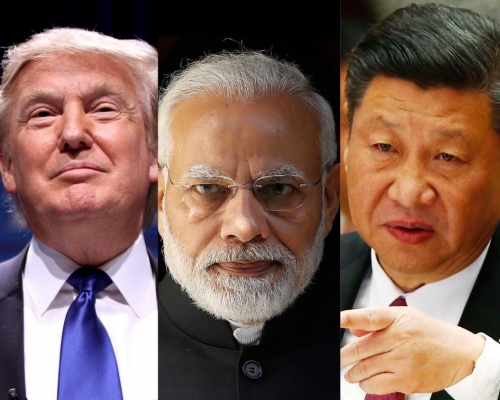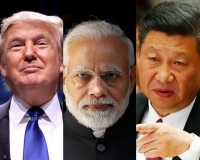DPG Papers on COVID-19 Global Impact
Geopolitical Lessons of COVID-19 for India
May 04, 2020, By Lalit Kapur
This paper seeks to understand how the pandemic will impact on India’s aspirations to become a pole in a multi-polar world and identify the dogmas it must shed to enable realisation of this vision.
When the World Reached Out to China
April 29, 2020, By Sanjay Pulipaka
It is being argued that China is today the first responder in a regional and global crisis. However, such claims entirely overlook the remarkable outreach by the global community to assist a China reeling under the pandemic in the first two months of this year.
Coronavirus Nightmare for West Asia
April 27, 2020, By Sanket Joshi
The West Asia-North Africa region, with its oil driven economies, multiple theatres of conflict (Iraq, Yemen, Syria, Libya and Palestine) and great power rivalries, will struggle to contain the COVID-19 pandemic, which could devastate the entire region with severe health and economic consequences.
Failing COVID-19 Response in Pakistan and Afghanistan
April 24, 2020, By Shreyas Desmukh and Arun Sahgal
The COVID-19 pandemic is testing the resolve of all nation states and revealing their true national character. Countries, both rich and poor, have been fighting the pandemic to the best of their ability and in consonance with their political philosophy and health infrastructure. However, there are also certain nations where deep fault lines are being exposed, Pakistan and Afghanistan among them, where political gamesmanship prevails and the security establishment is watching from the sidelines.
Re-imagining Globalisation
April 22, 2020, By Sanjay Pulipaka and Rakshit Mohan
COVID-19 has tilted the argument in favour of the sceptics of globalisation by demonstrating that the efficiency gains come with significant costs, such as disruption of global supply chains which are disproportionately routed through China.
COVID-19 Response: Beijing Consensus versus New Delhi Model
April 21, 2020, By Mohit Mussadi and Arun Sahgal
COVID-19China, a one party authoritarian state, attempting to hide its subterfuge and concealment of facts by showcasing the success of its rigorous containment strategies and demanding accolades for its generous COVID-19 assistance; and the other by India, a democratic state of similar size that has sought to base its fight against COVID-19 on principles of openness, transparency and universal human values. Response: Beijing Consensus versus New Delhi Model
Japan’s COVID-19 Stimulus
April 18, 2020, By Sanjay Pulipaka and Libni Garg
The COVID-19 pandemic has resulted in lockdowns and a severe disruption of economic activity across the world. On April 14, 2020, the IMF projected that the world economy is expected to contract by 3% in 2020, experiencing its worst recession since the Great Depression.
Multilateralism in Disarray: A Reality Check for India
April 13, 2020, By Hemant Krishan Singh
It is being argued, with some reason, that the multilateral system is breaking down amidst deepening geopolitical competition between the great powers of the day, the US and China. However, it is instructive to recall that there is nothing new or unusual about great power rivalry, which is a permanent condition. Throughout its initial decades, the UN System made steady progress with the normative framework of international law and rules based order despite the antagonism of an intense Cold War. So what has changed that we are facing a crisis of multilateralism today?



